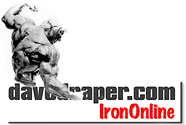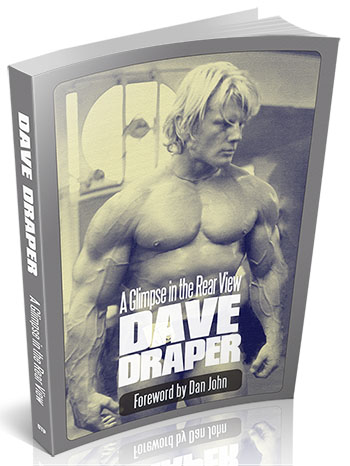WORKOUT FAQS
I'm
a beginner. How many days a week should I workout and what balance
between weights and cardio? How many sets of how many reps of how
many body parts?
In the beginning, allow yourself 60-90 minutes, three or four days
a week. This will allow you to do 15-20 minutes of cardio, 10 minutes
to work your mid-section and 45-60 minutes for the weight training.
Pick one exercise per muscle group (chest, back, shoulders, biceps, triceps, legs) and do 3/4 sets of 10-12 repetitions for each exercises. Do this for 6 weeks and plan then to alter your routine to suit your progress.
Should
I do my aerobics before or after my weight training?
If you're reasonably fit, I suggest you do 15-20 minutes of aerobics
first, followed by 10 minutes of mid-section exercise and finish
up, unpressured and focused, with your weight routine.
Less fit people prefer to warm up only for 5 minutes before weight training in order to conserve energy, doing the remainder of their cardio upon completion.
Some reserve their cardio for the end of their workout, aiming to burn their excess calories. There are good arguments for all. You chose as you become familiar with your training.
How
do I get a flat stomach?
To tone the muscle and reduce the size of your mid-section, plan
to do a basic 10 minute routine of stomach crunches and leg raises,
3 to 4 times a week. 15-20 minutes of intense cardio will help overall
tone and introduce metabolic improvements to burn bodyfat, much
of which is stored in the hips and mid-section. Plan on a sound
high-protein, low-fat menu. Note: overall weight training contributes
to the tone of the stomach and the burning of bodyfat.
My
shoulder hurts when I bench press. What should I do?
As shoulders endure overuse and misuse, injury and pain is
not uncommon. Warm up shoulders with light weight and high reps.
This will align mechanics, bring supportive blood to the muscles,
arouse synovial fluid in the joint and provide warmth for movement
ease. If pain persists in your bench as you add weight, try changing
your grip (a hand in or a hand out), try the Smith Press, or go
directly to dumbbells. Dumbbells give you freedom to alter the position
of the resisting weight with hand rotation and re-establishment
of groove to avoid muscle aggravation. Perhaps a change of angle
will allow pain-free movement. You need to listen to the pain and
work around it. I prefer this to laying off.
Are
supplements good for me or a waste of money?
A good quality time-release vitamin-mineral is very important.
These nutrients needed for muscle repair, resistance, internal health,
skin, bone and energy are required regularly, in abundance and often
cannot be stored or produced by the body. We rarely eat enough of
the right foods to get that which we need for minimum health, no
less high performance. We are composed largely of protein; protein
is the major ingredient for muscle building, hormone structure,
energy and much more. Again, as high performers, we want high quality
protein in abundance throughout the day to build muscle and grow
strong with great vitality. A quality
protein supplement from whey and casein will assure us of this for those times when consumption
of solid food is not convenient or desirable. These are the basics
you really need. They are not a waste of money, instead, they are
a good investment in long life and good health.
Do
I need a lifting belt?
It's imperative to use a high quality leather lifting belt to support
your lower back when lifting overhead, deadlifting, squatting or
performing intense standing curls and lateral raises. When lifting
throughout your regular routine where there is no excessive demand
on the lower spine, train without the belt to allow the muscles
to do their job freely. It's a good idea to do specific exercises
to strengthen the vulnerable, often troublesome low back area -
hyperextension, stiff-legged deadlifts and power deadlifts.
How
much water should I drink a day?
Typically two litres a day is a healthy recommendation. Big
people, more. Hot days, more. High activity days, more. We need
lots - energy, well-being, to detoxify, fight dehydration. We are
75% water, after all.
I
heard I should eat several meals a day. What do you think?
Breakfast always. Wisely eat every three hours, each meal consisting
of 30-40% protein, 30-40% carbohydrate, 10-20% fat. I put the accent
on animal protein - 45-40-15. Eat 30 to 60 minutes prior to your
workout or athletic activity and again 30-60 minutes after your
training to serve energy and muscle demands.
Click here to learn from Dave's mistakes

